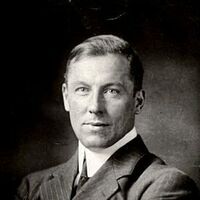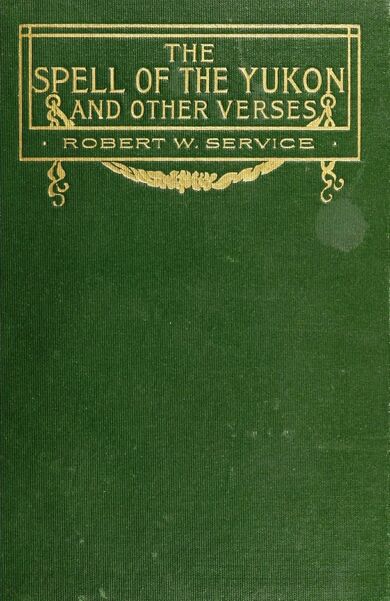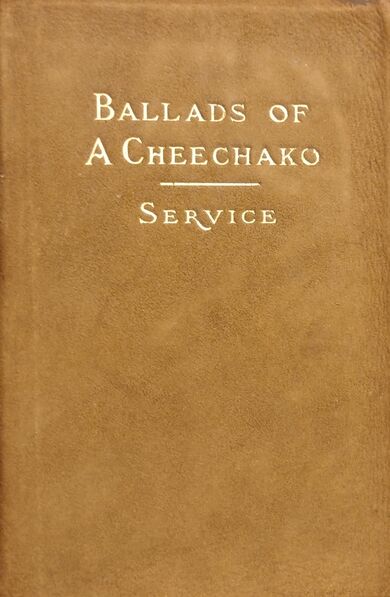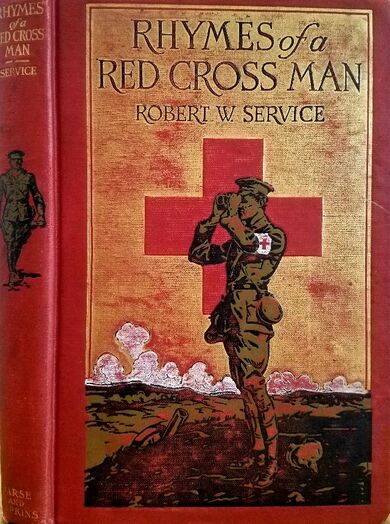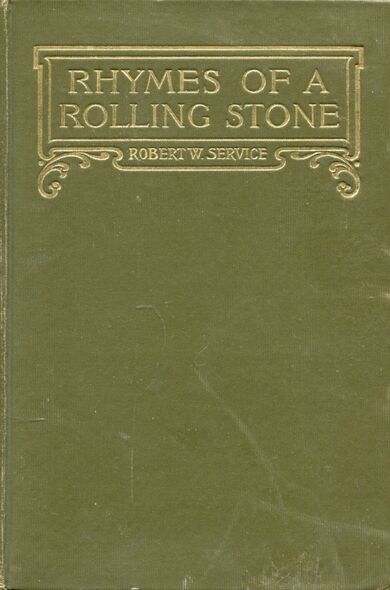The Ballad of Casey's Billy-Goat
You’ve heard of “Casey at The Bat,”
And “Casey’s Tabble Dote”;
But now it’s time
To write a rhyme
Of “Casey’s Billy—goat.”
Pat Casey had a billy—goat he gave the name of Shamus,
Because it was (the neighbours said) a national disgrace.
And sure enough that animal was eminently famous
For masticating every rag of laundry round the place.
For shirts to skirts prodigiously it proved its powers of chewing;
The question of digestion seemed to matter not at all;
But you’ll agree, I think with me, its limit of misdoing
Was reached the day it swallowed Missis Rooney’s ould red shawl.
Now Missis Annie Rooney was a winsome widow women,
And many a bouncing boy had sought to make her change her name;
And living just across the way 'twas surely only human
A lonesome man like Casey should be wishfully the same.
So every Sunday, shaved and shined, he’d make the fine occasion
To call upon the lady, and she’d take his and coat;
And supping tea it seemed that she might yield to his persuasion,
But alas! he hadn’t counted on that devastating goat.
For Shamus loved his master with a deep and dumb devotion,
And everywhere that Casey went that goat would want to go;
And though I cannot analyze a quadruped’s emotion,
They said the baste was jealous, and I reckon it was so.
For every time that Casey went to call on Missis Rooney,
Beside the gate the goat would wait with woefulness intense;
Until one day it chanced that they were fast becoming spooney,
When Shamus spied that ould red shawl a—flutter on the fence.
Now Missis Rooney loved that shawl beyond all rhyme or reason,
And maybe 'twas an heirloom or a cherished souvenir;
For judging by the way she wore it season after season,
I might have been as precious as a product of Cashmere.
So Shamus strolled towards it, and no doubt the colour pleased him,
For he biffed it and he sniffed it, as most any goat might do;
Then his melancholy vanished as a sense of hunger seized him,
And he wagged his tail with rapture as he started in to chew.
“Begorrah! you’re a daisy,” said the doting Mister Casey
to the blushing Widow Rooney as they parted at the door.
“Wid yer tinderness an’ tazin’ sure ye’ve set me heart a—blazin’,
And I dread the day I’ll nivver see me Anniw anny more.”
“Go on now wid yer blarney,” said the widow softly sighing;
And she went to pull his whiskers, when dismay her bosom smote. . . .
Her ould red shawl! 'Twas missin’ where she’d left it bravely drying –
Then she saw it disappearing– down the neck of Casey’s goat.
Fiercely flamed her Irish temper, “Look!” says she, “The thavin’ divvle!
Sure he’s made me shawl his supper. Well, I hope it’s to his taste;
But excuse me, Mister Casey, if I seem to be oncivil,
For I’ll nivver wed a man wid such a misbegotten baste.”
So she slammed the door and left him in a state of consternation,
And he couldn’t understand it, till he saw that grinning goat:
Then with eloquence he cussed it, and his final fulmination
Was a poem of profanity impossible to quote.
So blasting goats and petticoats and feeling downright sinful,
Despairfully he wandered in to Shinnigan’s shebeen;
And straightway he proceeded to absorb a might skinful
Of the deadliest variety of Shinnigan’s potheen.
And when he started homeward it was in the early morning,
But Shamus followed faithfully, a yard behind his back;
Then Casey slipped and stumbled, and without the slightest warning
like a lump of lead he tumbled– right across the railroad track.
And there he lay, serenely, and defied the powers to budge him,
Reposing like a baby, with his head upon the rail;
But Shamus seemed unhappy, and from time to time would nudge him,
Though his prods to protestation were without the least avail.
Then to that goatish mind, maybe, a sense of fell disaster
Came stealing like a spectre in the dim and dreary dawn;
For his bleat of warning blended with the snoring of his master
In a chorus of calamity– but Casey slumbered on.
Yet oh, that goat was troubled, for his efforts were redoubled;
Now he tugged at Casey’s whisker, now he nibbled at his ear;
Now he shook him by the shoulder, and with fear become bolder,
He bellowed like a fog—horn, but the sleeper did not hear.
Then up and down the railway line he scampered for assistance;
But anxiously he hurried back and sought with tug and strain
To pull his master off the track . . . when sudden! in the distance
He heard the roar and rumble of the fast approaching train.
Did Shamus faint and falter? No, he stood there stark and splendid.
True, his tummy was distended, but he gave his horns a toss.
By them his goathood’s honour would be gallantly defended,
And if their valour failed him —he would perish with his boss
So dauntlessly he lowered his head, and ever clearer, clearer,
He heard the throb and thunder of the Continental Mail.
He would face the mighty monster. It was coming nearer, nearer;
He would fight it, he would smite it, but he’d never show his tail.
Can you see that hirsute hero, standing there in tragic glory?
Can you hear the Pullman porters shrieking horror to the sky?
No, you can’t; because my story has no end so grim and gory,
For Shamus did not perish and his master did not die.
At this very present moment Casey swaggers hale and hearty,
And Shamus strolls beside him with a bright bell at his throat;
While recent Missis Rooney is the gayest of the party,
For now she’s Missis Casey and she’s crazy for that goat.
You’re wondering what happened? Well, you know that truth is stranger
Than the wildest brand of fiction, so Ill tell you without shame. . . .
There was Shamus and his master in the face of awful danger,
And the giant locomotive dashing down in smoke and flame. . . .
What power on earth could save them? Yet a golden inspiration
To gods and goats alike may come, so in that brutish brain
A thought was born– the ould red shawl. . . . Then rearing with elation,
Like lightning Shamus threw it up– AND FLAGGED AND STOPPED THE TRAIN.

